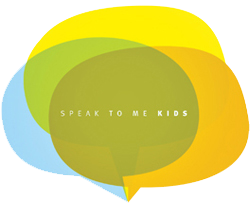Does My Child Need Speech Therapy?
We receive many phone calls which begin with this question. That is why we offer a free 30 minute consultation. This provides you with an opportunity to meet a licensed speech-language pathologist and have your questions answered as soon as possible.
If, as a caregiver or parent, you have any concerns regarding your child's speech and language do not hesitate to contact us. Remember the earlier the intervention the better the outcome! Achievement beyond expectations!
Below are a variety of reasons your child may need speech-language therapy:
Articulation or Phonological Disorders
Hearing Impairments
Traumatic Brain Injury
Developmental Delays
Dysarthria / Low Muscle Tone
Apraxia Of Speech
Chronic Hoarseness
Autism Spectrum Disorder
Down Syndrome
Cerebral Palsy
Motor Planning Problems
Sensory Based Feeding Disorders
Milestones for the first 3 years of language development:
-
12 months
Feeding self with fingers
Babbles using different sounds combining words
Takes turns vocalizing labeling familiar items
points/ gestures
-
has between 10-20 words
is beginning to combine words
responds to yes/no
follows simple commands
understands at least 50 words
has begun to ask ‘what’s that?’
-
has approximately 100 words and is consistently adding more
uses 2-3 word phrases
is 50% intelligible to parents
follows 2 step related directions
-
is about 75% intelligible
uses sentences
understands prepositions (in, on, under)
is using adjectives
asks ‘what,’ ‘why,’ and ‘where’ questions
understands time concepts
-
By 3 years old: says m, n, h, w, p, b, t, d, k, g and f in words
By 4 years old: says y and v in words. They may still make mistakes on s, sh, ch, j, ng, th, z, l, and r sounds however they are improving and most people understand the child’s speech
